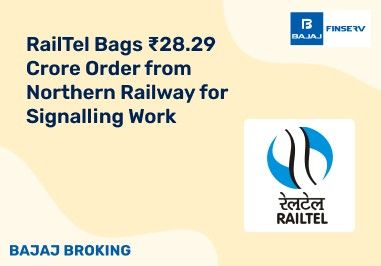What are Currency Options?
Currency Options allow you to speculate on price movements in currency trading without a huge upfront investment. Thus if you’re considering making money from changes in currency rates, currency options could be a suitable choice for you. This tool allows you to speculate on price movements in currency trading without a huge upfront investment.
As the name suggests, currency options give you the choice but do not force you to purchase or sell a certain quantity of foreign money at an exchange rate fixed in advance and by a particular date. In this agreement, there are two participating sides. You, as the purchaser, pay a premium for the choice, and on the other side is the seller who has to complete the terms of the contract if you choose to exercise it.
Considering making money from changes in currency rates, yet feeling overwhelmed by the concept of currency trading? Currency options could be a suitable choice for you. This tool allows you to speculate on price movements in currency trading without a huge upfront investment.
As the name suggests, currency options give you the choice but do not force you to purchase or sell a certain quantity of foreign money at an exchange rate fixed in advance and by a particular date. In this agreement, there are two participating sides. You, as the purchaser, pay a premium for the choice, and on the other side is the seller who has to complete the terms of the contract if you choose to exercise it.
How Currency Options Work
Currency options work by making a deal between two sides: the person who buys, and the person who sells.
During such a transaction, you must specify to the seller whether you are opting for a call or a put currency option, along with the exchange rate (strike price), the amount of currency (contract size), and the expiry date.
As the purchaser, you pay a premium to the seller for having the choice to purchase or sell the currency at a price you both agree on. This premium indicates the option’s value and factors like different things such as time to expiry, price volatility, and current interest rates.
When you reach the point of exercising the currency option, this is where things become more interesting. You hold the right, but not the mandatory responsibility to exercise your option before its expiration date.
If you buy a call option and think the foreign currency will rise in value compared to the Rupee, you can use your option to purchase that currency at an agreed-upon price beforehand. Conversely, suppose you have purchased a put option, expecting that the value of the foreign currency will decline compared to the rupee. In that case, you are allowed to use this option to sell the currency at a price that is agreed upon in advance.
If the option is not used before the expiration date, it will no longer be valid and its worth becomes zero. The premium paid for this option by the buyer turns into profit for the seller.
Types of Currency Options
There are two types of currency options, namely call options and put options.
1. Call Options: If you are bullish about a particular currency trade, say the US Dollar (USD) versus the Indian Rupee (INR), it means you believe that the USD will become stronger compared to the INR. In this case, a call option would let you take advantage of this expected increase.
In this case, you would buy a call option contract for an amount of USD, at an agreed-upon exchange rate (strike price) and expiry date. This price is the exchange rate where you hold the option, yet not the obligation, to buy USD from the option seller.
You give a premium (a charge) for the privilege to buy or sell. The amount of this premium depends on certain things, such as how much time is left before it expires, what rate of exchange currently exists, and how volatile this currency pair tends to be.
2. Put Options: Let’s assume that you are concerned regarding the Indian rupee's stability against the Euro (EUR). You expect that the Euro will get stronger compared to the Indian rupee. A put option could help you hedge against this possible decline.
You purchase a put option agreement. This gives you the right to sell a certain quantity of EUR at a decided exchange rate (strike price), up until the expiration date.
The strike price is the exchange rate at which you can sell EUR to the option seller if you choose to do so. Similar to call options, you pay a premium for this right.
Benefits of Currency Options
Currency options offer several distinct advantages that could help improve your trading journey in several ways:
Leverage: Compared to buying or selling entire amounts of foreign currency directly, using currency options lets you manage a bigger position with a smaller initial investment. This is because you, as the buyer of the currency option, pay only a premium and not the entire value of the currency.
Flexibility: Currency trading offers traders a plethora of choices. You hold the right to exercise the option if you want, but there is no obligation to do so. This flexibility allows you to adapt your strategy based on market movements.
Hedging: Currency options have the potential to serve as an invaluable tool to protect your foreign currency assets. If you worry about possible volatility in the exchange rates, purchasing put or call options could help you hedge against such losses.
Lower Risk: Currency options trading presents traders with the ideal risk management strategy. As a trader, your losses (if any) will be limited to the premium that you have paid for the option. Had you bought the currency itself, you would have faced big losses if the exchange rate moved in an unfavourable direction.
Risks Associated with Currency Options
Here are some major risks to consider before trading currency options:
Time Decay (Theta): The worth of a currency option naturally decreases as time passes, regardless of changes in the exchange rate. This is called theta decay. When the expiration date draws closer, options lose their value even if there has not been much movement in the rates of the underlying currency. This can greatly reduce your potential earnings, especially for options that have a longer termination time.
Implied Volatility (Vega): The premium you pay for a currency option depends on implied volatility, showing what the market expects about future price changes. If the actual volatility is less than expected, then the value of the option may not rise as much as thought and this could limit your potential profit. On the other hand, if there is more volatility than what was anticipated, it can lead to a faster erosion of the option's value due to theta decay.
Risk of Expiry: In contrast to regular currency trading where you can keep your position for as long as desired, with currency options there is a set expiry date. If the exchange rate doesn't change in your favour by this end date, the option agreement becomes worthless and you lose all of the premium that was paid.
Complex Strategies: Currency options, even though they seem simple, can be utilised for formulating complicated trading strategies. These tactics are made up of more than one options deal and need a profound comprehension of market movements along with risk control methods. Those who are new, need to explore basic strategies first before trying the complex ones.
Currency Options Terminology and Elements
To start with trading currency options in India, it is important to first learn more about the relevant terminologies which you may find handy:
Currency Pairs: This refers to the two types of currencies involved in an options contract. Like currency trading, options trading deals with the exchange rate between two currencies, such as USD/INR (US Dollar versus Indian Rupee).
Strike Price: This set exchange rate is central to the options contract. It marks the particular rate at which you hold the right, but not the obligation to buy (for a call option) or sell (for a put option) the foreign currency before the contract reaches its expiration date.
Call Option: This type of options contract enables you to buy a specified amount of foreign currency at a fixed price that is decided beforehand, and you must do so by the time limit given.
Put Option: This option permits you to sell a set quantity of foreign currency at an agreed-upon strike price before a specified expiration date.
Expiration Date: This is the deadline for you to use your right to purchase or sell the currency according to the options agreement. If the agreement is not used by this date, the option becomes void and ceases to have any worth.
Premium: The premium is the money you pay to the person who sells you an option. This fee grants you the right to do currency trading at a price you both agree upon before the options contract reaches its expiration date. The amount of this premium is influenced by factors like time till expiry, price volatility of the currency, and current interest rates.
Contract size: This is the standard amount of foreign currency covered by a single currency options contract. It is important to consider this while calculating possible profits or losses and to check whether it is compatible with your trading goals.
Conclusion
Currency options give Indian traders a flexible instrument to benefit from changes in foreign exchange rates. They provide leverage, adaptability in hedging or speculating, and the chance to enhance profitability prospects compared to regular currency trading. However, you must not forget that when dealing with currency options, there are several built-in risks. These include the reduction of the contract’s value over time, unpredictable price fluctuations, and the possibility that the options contract may expire, which could result in losing the initial payment.
Finally, having a solid knowledge base and a moderate risk appetite are some of the key ingredients that will allow you to use currency options to your advantage in the foreign exchange market.
Disclaimer: Investments in the securities market are subject to market risk, read all related documents carefully before investing.
This content is for educational purposes only. Securities quoted are exemplary and not recommendatory.
For All Disclaimers Click Here: https://bit.ly/3Tcsfuc













